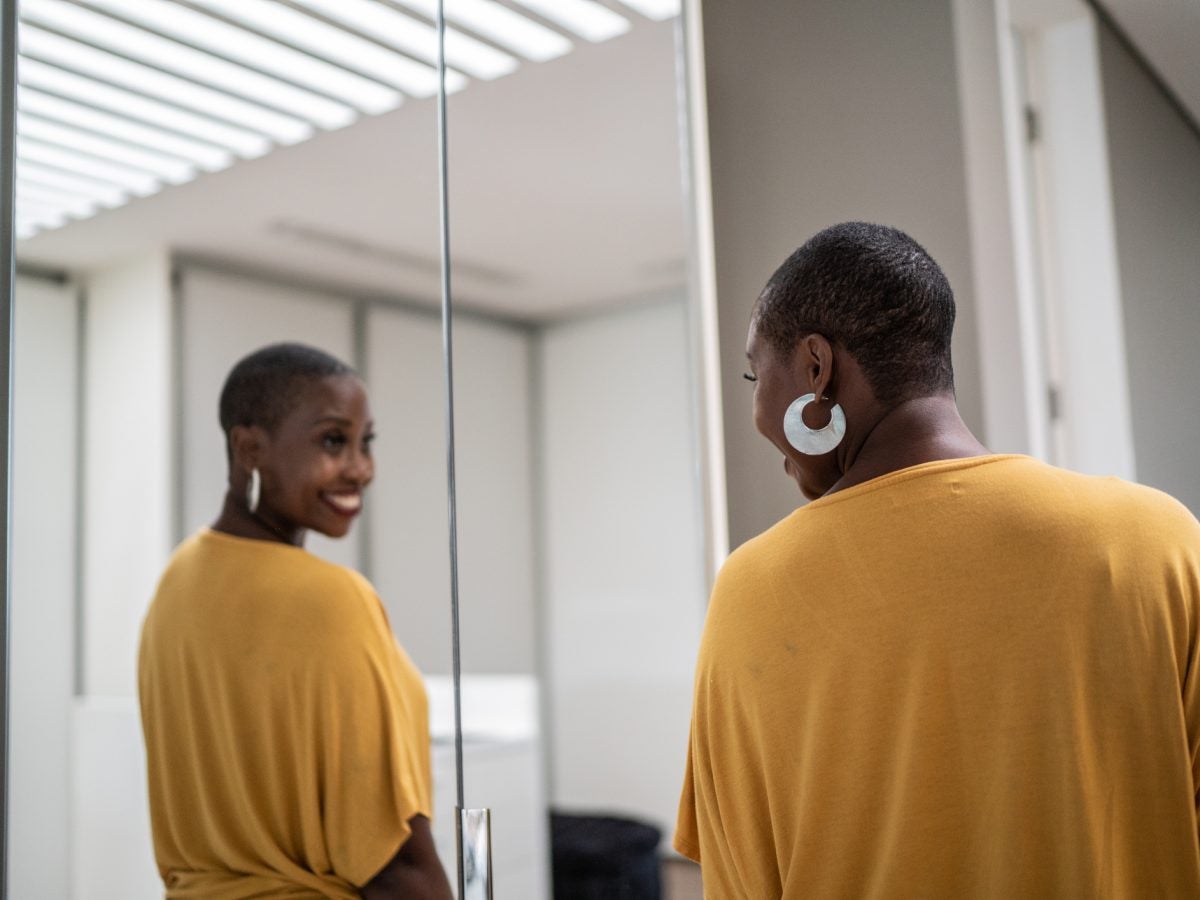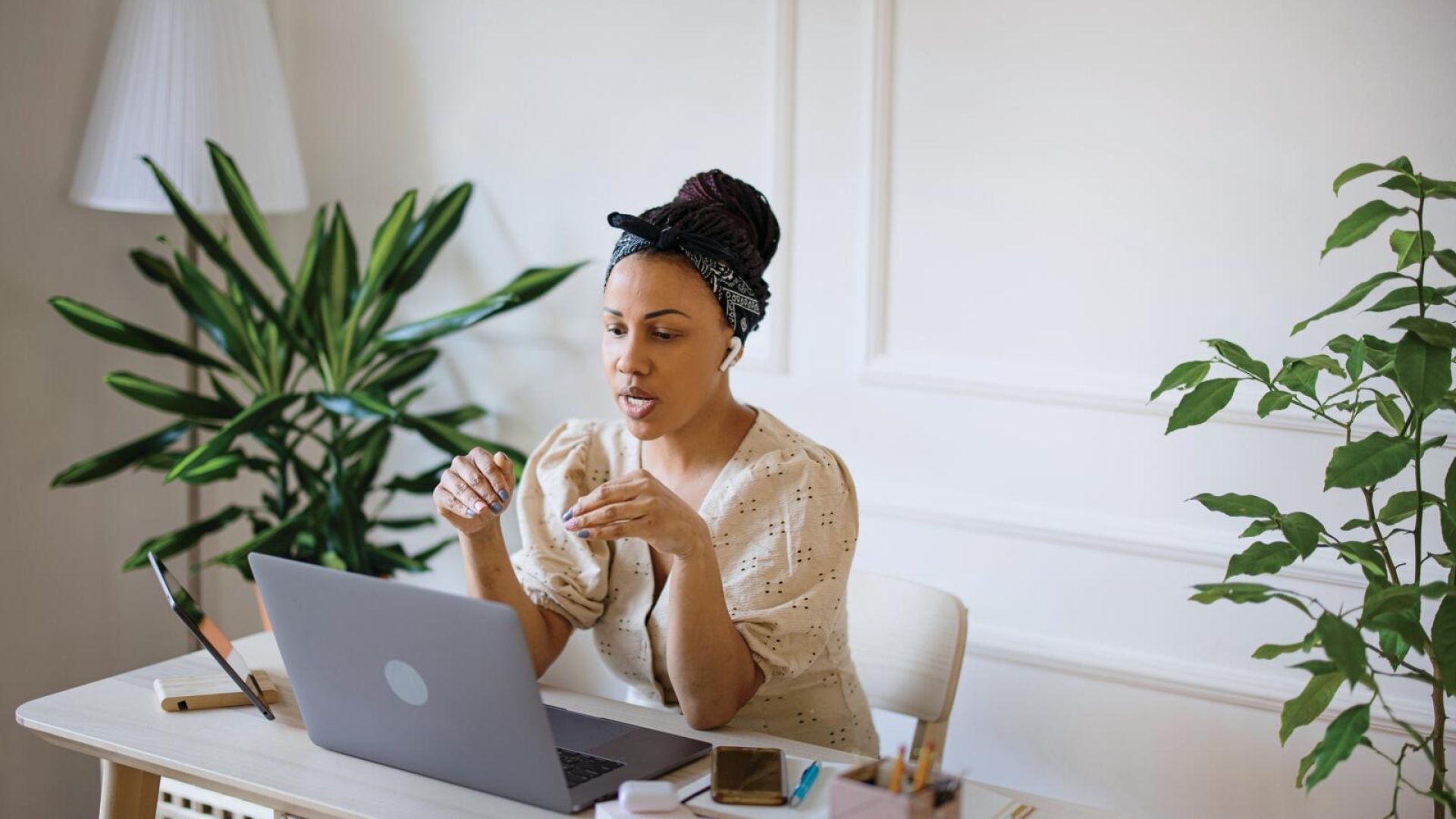
Self-love has been an ongoing topic over the past few years, but what does it really mean to love yourself? Although pamper days, gourmet meals, and shopping sprees can fall under the umbrella of showing yourself love, it is arguably a very small part of it.
Krystal Conner, a master life coach and host of the How to be a Dangerous Woman podcast, says self-love is about accepting all the parts of you. She adds that this doesn’t mean you don’t have anything you would want to change or improve about yourself.
“It’s learning to accept who you are as you are, as you become an even better person,” Conner says.
I’ll be the first to admit that self-acceptance is difficult in a world that holds us to unrealistic expectations in every facet of our lives. However, radical self-acceptance is required if you want to truly love yourself. What are some ways to get to a higher level of self-acceptance? Self-evaluation is one route, says Conner.
“It has to do with looking at yourself, evaluating where you are, why you’re there, why you’re the way that you are, and embracing and loving that before you try to change everything about yourself,” she says.
It may also be a good practice to explore the things you struggle to accept about yourself. You can do this by monitoring your negative self-talk and writing down any patterns you notice in a journal.
Conner recommends becoming an “observer of your thoughts.”
“One of the most loving things that you can do is to ask yourself questions about how you feel and why you feel that way and what you’re thinking,” she says. “Notice how the way that you think affects your behavior and your feelings. To me, that is the best way to get to know yourself and to embrace and love all of the parts of yourself.”
For instance, you may notice that every time you make a mistake, you criticize yourself harshly. Or, perhaps every time you look in the mirror and see something about your body that you’d like to change, you ruminate on how unattractive it is. These are both forms of negative self-talk.
To understand why you’re having this negative inner dialogue and where it comes from, think about what belief those thoughts are rooted in. Remember, our beliefs often drive our thoughts and behaviors. For example, you may criticize yourself harshly every time you make a mistake because you believe you have to be perfect all of the time. And that belief could have come from an adult in your life who never gave you grace when you made mistakes growing up.
Likewise, you may have so much negative self-talk about your body because you believe it has to look a certain way to be attractive. That belief could come from messages you hear in the media or a demeaning partner. Some behaviors that may follow after the negative self-talk are unnecessary shopping or comfort eating to deal with uneasy feelings.
The goal of becoming an observer of your thoughts is to understand what beliefs are driving them and the behaviors that follow. Once you have this information, you can then choose to adopt different beliefs; ones that are more self-affirming and better serve you.
Once you become aware of your negative thoughts, you can also start interrupting them when they arise, says Conner.
“When you begin to notice that you’re doing that and you catch it, you’re compassionate with yourself and it’s like, ‘No, I don’t talk to myself that way,'” she says. “That is a huge breakthrough in self-love and I think probably one of the most important because the [negative] self-talk is something that we do without even noticing it.”
Seeing as learning to love yourself is a lifelong journey, it can be helpful to have the support of your circle of family and friends along the way. Having people who love you hold you accountable when you’re not being self-loving can help you on your journey.
“We love the support, but you also need somebody who’s going to push you when you’re not living up to the best of who you can be. And when you have people around you that can see that and recognize that in you and push you, I think that is a great step.”
It isn’t always easy to be vulnerable with others and invite them in during moments when you’re not the best version of yourself. However, it can help you make more progress than doing it alone.
Finally, the work of self-love is often arduous, time-consuming, and heavy. But it is worth it. Black women, especially, deserve to know what a life overflowing with self-love looks and feels like.
“We often put ourselves last and we don’t feel like we have time to do this work or that it’s somehow selfish for us to do this work, but that this is the best thing that you can do, not only for yourself, but any person you’re in relationship with. And it’s just you being the best version of you is the absolute best thing that you can do. And there’s nothing selfish about that.”





